Faithfully ministering, teaching, leading consistently for 40 years, and marriage for 40 years and still counting are some of the amazing legacies of Rev Dr Martyn Atkins. Apostle Paul’s admonition to Timothy in his first letter best describe Martyn’s life and ministry (4:12-13). Paul admonishes Timothy to be an example, offering oneself as ‘an impression that is used as a mould to shape someone or something else.’ Martyn’s ‘everyday speech, everyday life, through a selfless love – expecting nothing in return, through a trustworthiness in God, and through a pure life’ suggests ‘a mould that should be pressed into the lives of others so they too can attain the same shape.’ Martyn exemplifies a faithful servant, a Christian minister of God’s word and marriage life as a godly example for others.
Martyn was born in West Yorkshire, on 16 June 1955. He went to Prince Henry’s Grammar School (which was by then a ‘Comprehensive’ school) and left at 17. He went to catering college for 2 years because he wanted to be a caterer. According to him, ‘at the age of 17 having left school but not quite started college I was converted to Christ. I immediately joined a local church, which was where my mother, a deeply Christian woman, went. It was Otley Methodist Church in West Yorkshire. I joined the youth fellowship there and very quickly experienced a call to preach and became a local preacher in training at the age of 18. The call to preach was also a call to ordained ministry, and almost right away I knew that was what God was calling me into.’ The way Jesus meets Peter the outspoken fisherman provides a resemblance to the way Rev Dr Martyn Atkins was converted, a caterer to a preacher. Just as a fisherman becomes a disciple, so Martyn the caterer becomes a beatitude leader.
Martyn’s conversion offers leadership lessons from the Beatitudes portion of Jesus’s Sermon on the Mount (Matthew 5:3-10). The Beatitude as statements of counsel begins with the Greek word, makarios, which translates into English as “blessed” which incorporates the meaning of ‘wholeness, of joy, of well being…’
Martyn in one of his books, Sermon on the Mount: Following Jesus in Today’s World, described what kind of character are beatitude people. His description unknown to him mirrors his personal Christian conversion, devotion, and leadership development. In a world populated by ‘non-Beatitude’ people and leaders, ‘a world where wealth equals success … a world where pride and assertiveness are prized … a world where not getting caught is the main aim … a world where ruthlessness is a desirable quality … a world where ripping people off, lying, promiscuity, betrayal, are just the way it is … a world where living in the real world means violence, hostility and killing … a world where keeping quiet, and not putting your head over any parapet is smart … a world where respect and honour are much sought-after,’ Martyn operates in wholeness, joy, well-being and holistic peace. Martyn, with the personal thought of what could work for him as a caterer encountered a change. He was converted to Christ, hence becoming a beatitude person, he ‘grasped a great insight, not about what we think works, but about how God works.’ Martyn is poor in Spirit and using his reference to Monika Hellwing’s suggestion, Martyn realised he was in urgent need of redemption. He did not rest his security on things or his desire to be a caterer. He did not exaggerated sense of his importance or need of privacy. Martyn was able to distinguish ‘between necessities and luxuries.’ Martyn was no longer in hurry and haste to become a caterer, he waited upon God just as ‘the poor can wait, because they have acquired a kind of dogged patience born of acknowledge dependence.’ When Martyn, humbled, naked before God, and poor in spirit heard the gospel preached to him, ‘it sounds like good news and not like a threat or a scolding.’ Martyn responded ‘to the call of the gospel with a certain abandonment and uncomplicated totality’
Just over 22 years old, Martyn was ready for anything with God. He went to Hartley Victoria College to train in September 1977. His training was 4 years, full time and left with a BA degree in theology from the University of Manchester. Martyn abandoned his immediate desire to do a research degree to marry Helen. They met while Martyn was in training at theological college and at the end of the Third year, they married on 21st June 1980 and lived in a College house for the last (4th) year. The two, Martyn and Helen adopted the right spiritual posture before God, the posture of a Beatitude couple, prayerful, ‘humble, arms lifted in adoration, hearts and hands open and ready to receive from God.’ They both entered the gates to God’s kingdom as a Beatitude couple. Using Martyn’s word, ‘we enter the kingdom of heaven by being born again, and that takes humility. Dependence, sorrow, repentance, a longing for change … it is very difficult for proud people to acknowledge their spiritual bankruptcy, but such is necessary if we are to be Beatitude People,’ couple, leader, church or nations.
Martyn and Helen are held together for the past 40 years as a model of Beatitude couple, beyond ‘the contemporary fetish with ‘now’ – having it all in an instant, … are God’s people now, and … are preparing for eternity.’ Martyn and Helen with God’s glasses on are blessed as they shines clearly into my own life and others poverty of spirit. With my little time of attending prayer meeting with Helen at Calver Methodist Church while studying at Cliff College, I discovered a common mission factor in her and her husband. For each of them and as a couple, happiness is a by-product, ‘being blessed/happy is … not the goal itself.’ The lesson is that any attempt to construct the Scripture, the world, the family or the church for our own happiness will always be self-defeating.
Martyn and Helen are model of true happiness in Christian marriage, and ministry because they continue to search for the holy and kingdom ‘deep qualities that enrich life and enrich others,’ the church, and the nations. After 40 years of active ministry they are not ‘getting hung up about self-fulfilment’ but hung up on the Beatitudes, investing in others, in pursuit of God and God’s kingdom and mission.
In summer 1981, Martyn and Helen were sent to the Leeds (South) circuit, to look after two churches – one new (Hunslet) and one old (Middleton – now closed). During their 5 year stay, 1981-86, they had two sons and Martyn began in 1982 a part time research degree at Manchester. Martyn explained that the research ‘was essentially looking at the Service Books and other texts of the different Methodist denominations in Britain (Wesleyan, Primitive Methodists, Bible Christians etc) from the later 19th century to c1980, in order to relate how Methodists understood ‘sacramental’ initiation in baptism, ‘societal’ initiation in ‘church membership’ and ‘experiential’ initiation through conversion, and how all this did or did not relate understandably together. I suggested that it didn’t!’
From 1986-91 Martyn and Helen moved from the Leeds District only about 25 miles to the Shipley and Bingley Circuit in the West Yorkshire District with two local churches to look after – Hall Royd (now a LEP with the URC) and Saltaire. Using the words of Martyn, they had their ‘last and third son while there, and the older children starting school there. Aided by my first Sabbatical, in 1989 I managed to finish the thesis and was awarded a PhD from Manchester in 1990.’
Martyn, during both his first two appointments, was involved with Rob Frost evangelism initiatives, and when Easter People began in 1988 he was involved and spoke regularly at it from the start. It is important to note that Easter People was birthed at Camber Sands, the Pontins holiday camp near Rye in Sussex in 1988 where Rev Dr Donald English led the Bible Studies on the Four Alls of Methodism. Martyn’s evangelism passion helped with his next appointment, which was in Bideford, in North Devon at a Methodist boarding and day school called Edgehill College (now closed). While Helen worked as a nurse, part time when the boys were small, Martyn was chaplain and also head of Religious Studies, and taught pupils full time for GCSE and A level qualifications.
Despite Martyn’ s personal desire to probably stayed at Edgehill College longer than 5 years, he was invited in 1995 by Howard Mellor, who had then quite recently become Principal of Cliff College to lead the bible studies at the Derwent Week Convention. Martyn explained that, ‘at the end of the week Howard told me that there was a job for a Postgraduate Tutor, a new post, starting a year later, in 1996, and would I think about applying for it?’ At this point, Donald English had taken some interest in Martyn’s ministry telling him outright ‘I want you to apply for this role, please!’ Martyn applied, interviewed and was appointed as Postgraduate Tutor, leading the various courses/programs in mission, evangelism, renewal etc. He spent 12 years in total at Cliff, the first 8 as Postgraduate Tutor, the last 4 as Principal. In absentia, Martyn was voted as President-Designate at the Conference in Edinburgh in 2006. He was meant to be at the Conference as a representative, but didn’t go because his wife was was ill.
It was in the year 2007 of Martyn’s Presidency that I gained admission to Cliff College. From the first day I introduced myself to him in his office at Cliff College, I saw a father figure in him and I remain ever grateful for his love and support to me. Martyn was part of the British Methodist delegates to the Nigerian Methodist Biennial Conference in 2008. Contrary to his expectation to return to Cliff College as Principal at the end of a wonderful year of being President 2007-2008, another door of ministry was opened in the autum of 2007 when the Methodist Church advertised for a new General Secretary/Secretary of the Conference. The incumbent, David Deeks had decided to retire a year earlier than he once thought. Martyn was interviewed and appointed. At the end of the Conference of 2008 in Scarborough, he passed on the Presidency to Stephen Poxon.
Martyn moved from a year of Presidency to a new world in the central office for 7 years, 2008-2015. According to Martyn, ‘it was gruelling at times.’ Martyn as mission practitioner and scholar while in office published some books to awaken Methodism and the Church in Great Britain ‘facing perhaps the greatest challenges in its history; how to accept the painful reality of failing attendance; members who are leaving an organisation they feel is no longer their Church; and the fact that the Church is seen as largely irrelevant in an increasingly secular age.’ In one of his books, Resourcing Renewal: Shaping Churches for the Emerging Future, Martyn, drawing on a wide range of Christian traditions points the Church to the times of transition that can lead to genuine renewal and greater opportunity for the works of the Holy Spirit. Beyond a recent mantra of western churches, ‘The ministry of the whole people of God,’ Martyn explained that, ‘if the Christian Church is to become more truly mission-shaped and evangelistically effective … the proper ministry of the whole people of God is crucial.’ Martyn’s reference to ‘every member ministry’ based on the New Testament conception of ‘a Christian congregation to be a ministering community’ calls for ‘a rediscovery of the laity as the quintessential Christian ministry.’ This rediscovery as a transition from inherited to mission-shaped church calls for Fresh Expressions of Church with ‘new laity’ and ‘new clergy’ working together in a ‘new ministry.’
Writing as a Methodist Christian, Martyn while in office as the General Secretary published another short book as a personal account about Christian discipleship from a Methodist perspective. The title of the book is Discipleship…and the people called Methodists, and it has been reproduced in many other languages for global use. On the roots and rules of being better disciples based on the words of Donald English, “Remember, the Methodist people want to be better than they are,” Martyn’s thought about Donald’s statement calls us as followers of Jesus, ‘not yet the ‘finished article’ to a holy yearning as a gift of God. The yearning reawakens like the prodigal son, John and Charles Wesley who suffered one aspect of holy yearning that Martyn call ‘divine disquiet.’ Martyn’s books are sources of renewal especially at a time when ‘British Methodism stands at something of a crossroads in respect to various aspects of connexionalism.’
Martyn, as a beatitude leader had made a promise to his wife, Helen that in the year he was 60 he would resign and together offer the last 5 years of active ministry to any appointment the Conference wanted to send them. They were sent to Methodist Central Hall, Westminster, being the first time in 7 years they lived in the same house 7 days a week. What proved to be a very happy 5 years for Martyn and Helen climaxed their 40 years journey in active ministry, celebration of Martyn 65th birthday and their 40 years of Christian marriage. To God be the glory.

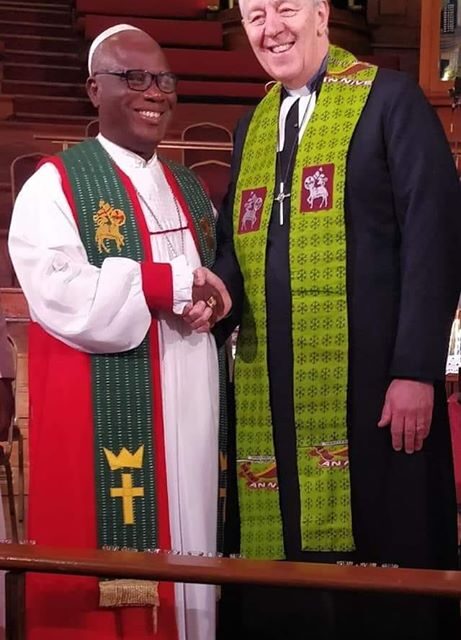
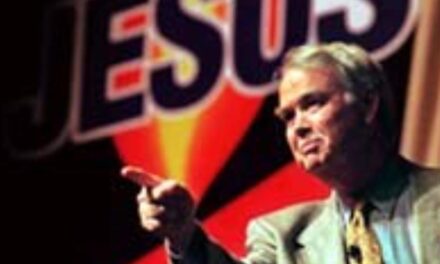
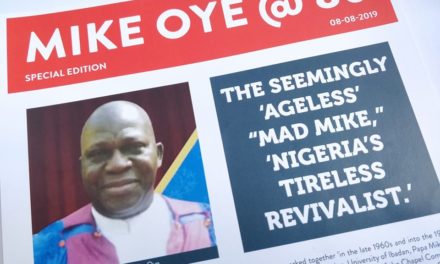
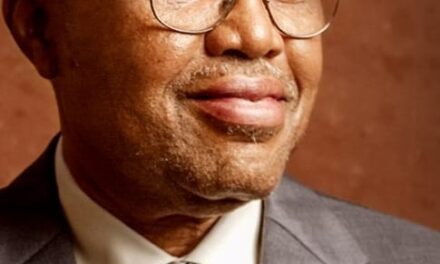
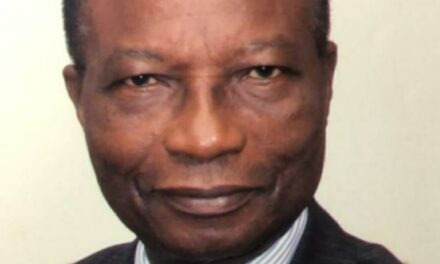





Recent Comments